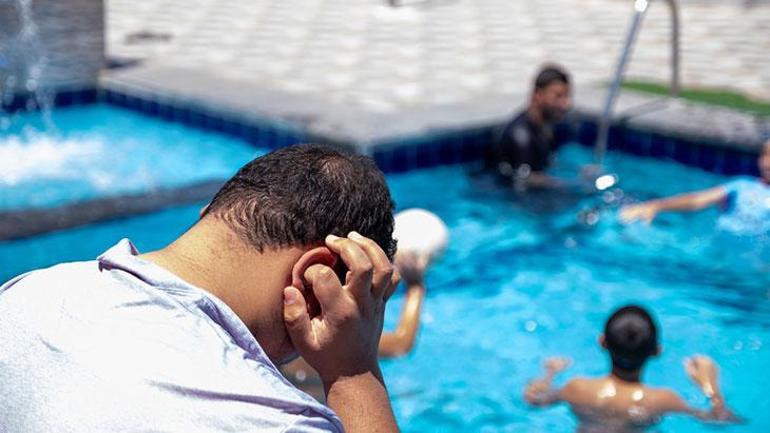Do not suddenly enter cold water! It causes pain, itching, discharge, and blockage in the ear.

Do not stay in the sea or pool for a long time!
Ear, Nose, and Throat Diseases Specialist Dr. Berna Yayla Özker states that prolonged exposure to sea and pool water is one of the most significant threats to ear health during the summer months. She says, “Water entering the ear canal disrupts the natural structure of the ear canal, causing earwax to swell and block the canal. This creates a favorable environment for bacteria and fungi to thrive. Humidity and heat, in turn, foster the rapid proliferation of microorganisms like bacteria and fungi. Furthermore, not drying the ear sufficiently after swimming can cause moisture to remain in the ear canal for extended periods, leading to many ear diseases, including ear infections and ear fungus.”

1- Make sure to dry your ears after swimming.
The inside of your ear, which remains wet, creates a breeding ground for bacteria and fungi. This is why an outer ear infection, known as "swimmer's ear," is common, especially during the summer months. To protect your ear health, be sure to dry your ears after swimming in the sea or pool. Wipe the outer part of your ear with a towel and tilt your head to the side to drain the water.
2- Do not enter cold water suddenly.
Inadequately chlorinated pools and polluted seawater can lead to ear infections. Fungal infections (otomycosis) are particularly common in polluted water. Similarly, sudden contact with cold water can cause ear infections, especially in people with sensitive outer ear. Therefore, choosing safe and clean water sources and avoiding sudden exposure to cold water is crucial for your ear health.

3- Use earplugs
If you frequently swim in a pool or the sea, the most important rule to follow is to prevent water from getting into your ears. This is because contaminated and chlorinated water, in particular, significantly increases the risk of infection. Therefore, it's beneficial to use swim plugs when swimming in the sea or pool. Ear, Nose, and Throat Disease Specialist Dr. Berna Yayla Özker explains that plugs reduce the risk of infection by preventing the ear from coming into contact with water, adding, "Using plugs can help prevent recurrence, especially in people who have had previous ear infections . However, plugs should be hygienic and disinfected after each use."
4- Do not clean with cotton swabs
Instead of cleaning the inside of the ear, cotton swabs can push wax further into the ear. This can lead to a blockage or infection. Furthermore, cotton swabs can damage the eardrum. The World Health Organization reports that the risk of hearing loss from improper ear-cleaning habits is close to 20 percent in all age groups. Therefore, Dr. Berna Yayla Özker emphasizes that ear cleaning should be limited to the outer ear area only, saying, "If necessary, earwax should be removed by an ear, nose, and throat specialist."

5- Limit headphone use
Listening to music with headphones for extended periods, whether traveling, at the beach, or while exercising , combined with sweating, increases moisture in the ears, allowing bacteria to grow more easily. So, don't forget to disinfect your headphones frequently and limit their use time.
6- If you have these complaints, do not wait!
Increased temperature and humidity during the summer months facilitate the proliferation of microorganisms. Therefore, if you experience ear congestion, pain, or discharge, consult a doctor immediately. Dr. Berna Yayla Özker explains that these symptoms are often a sign of infection during the summer months. He continues: "These symptoms can progress rapidly, especially in children. It's essential to consult a physician rather than wait for the problems to resolve on their own. Initiating treatment early can both reduce pain and prevent complications like hearing loss."
milliyet




